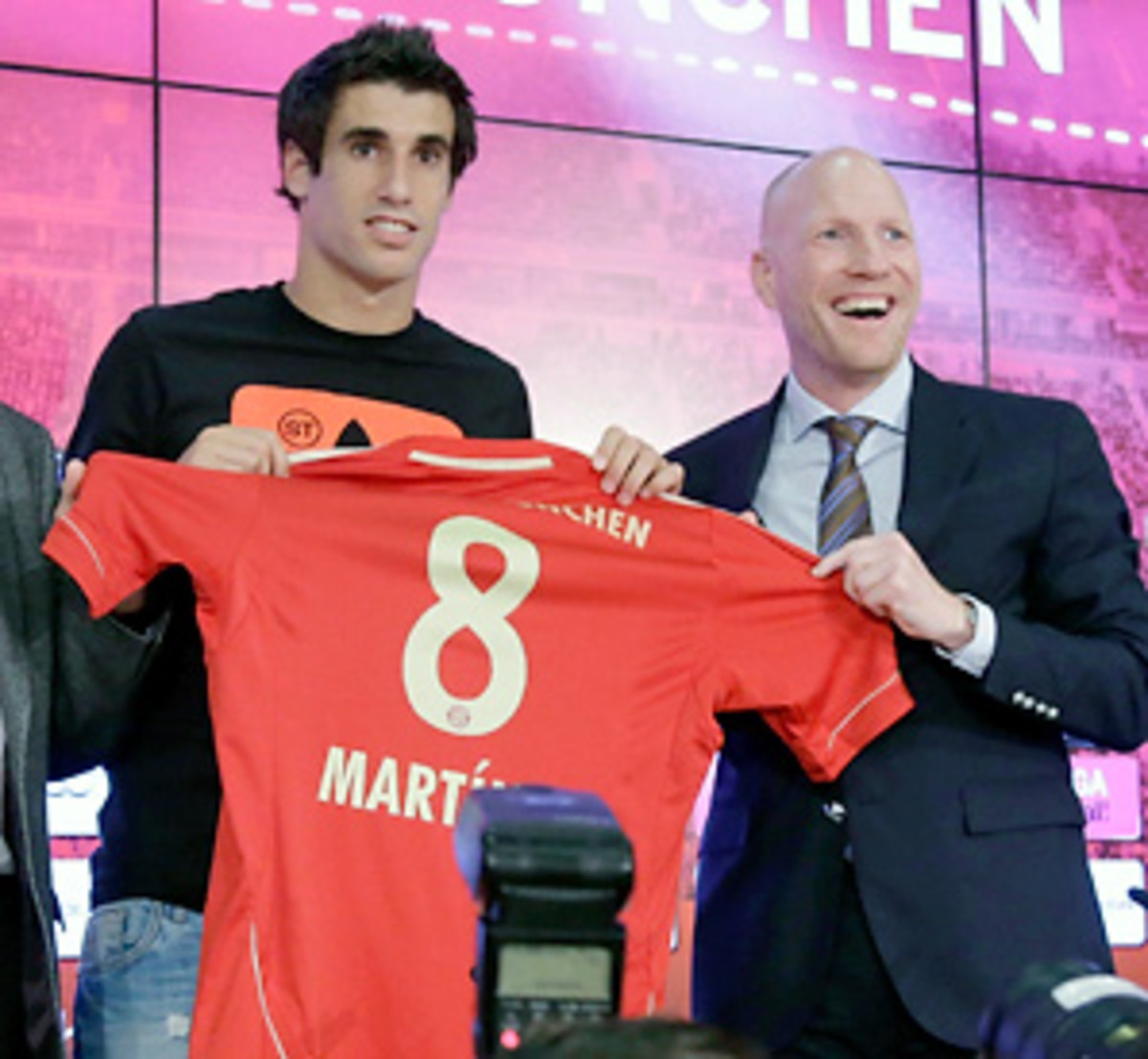Price is no object for FC Bayern
FC Bayern loves a bit of retail therapy. The German record title holders have made a habit of spending money after trophyless seasons, so it shouldn't have come as much of a surprise that they spent €70m on new players this summer. Only nouveau-riche, sheikh-backed Paris St. Germain (€140m) and Chelsea (€100m) invested more in this transfer window.
Breaking its own transfer record has also become a bit of a tradition for the club in recent years. First, there was Roy Makaay (€18.75m, Deportivo La Coruña, 2003), then Franck Ribéry (€25m, Marseille, 2007) then Mario Gomez (€30m, Stuttgart, 2009). Now it's Spanish midfielder Javi Martínez for €40m from Athletic Bilbao. On the hand, the transfer fee inflation is simply a reflection of European soccer's continued boom and of Bayern's increased spending power but the latest deal also had an element of the very "madness" that president Uli Hoeness used to sniffily identify in other super-powers's dealings.
"Martínez is of course not worth (€40m)," admitted Hoeness in FAZ, "but that's the sum we had to pay due to his contractual release clause. His normal worth is perhaps €20m, €25m. We decided we will take part in this insanity, for once".
The question is why did Bayern, who has long prided itself on (relatively) level-headed business dealings, willingly pay over the odds? The answer isn't that hard to find. Seasoned observers of the Bavarians have seen this pattern many times before: Bayern often falls in love with particular players and then goes out of its way to sign them. That's how Uli Hoeness, the most dominant figure despite being officially no longer involved in the day-to-day running of the club, has behaved for decades. So the Martínez deal, astronomic transfer fee aside,is not dissimilar to those for Ribéry, Gomez or keeper Manuel Neuer: once Bayern convinces itself that a particular player is the "right man", more strategic thinking or a search of alternatives simply goes out of the window.
A focus on the qualities of individuals has long been the club's inherent weakness. But when these gambles do pay off, they can make up for a lack of a more collective, considered approach. Martínez, the people in charge at Säbenerstrasse believe, is not just a missing part of jigsaw but THE missing part of the jigsaw. Thus, the price is largely seen as an irrelevance.
Local paper Abendzeitung believes that Bayern wanted to assert or re-assert its financial potency and send a signal to its rivals. That's obviously a welcome side-effect but more mundane reasons also played a part making this deal so expensive. The obstructive, uncompromising stance of Athletic Bilbao surprised the Germans. A year ago, they were privately pondering a €25m bid for Martínez but decided against it. When they returned with a similar figure in the summer, the Basques refused to enter negotiations. Bayern upped its offer to €30m and then €33m, the answer was always the same, however: no deal. Hoeness was simply forced to trigger the release clause. As late as Wednesday morning, when the player was having his medical exam in Munich, Bilbao angrily refused to cooperate. To comply with Spanish regulations, Martínez needed to deposit the €40m check with the league in Madrid to get out of his contract. There was surely never a more hostile take-over of a player at this level in European football.
Will it turn out to be a smart decision on the Bundesliga club's behalf? Sporting director Matthias Sammer has already warned supporters not to expect instant fire-works.
"He's not someone that will have everyone go 'ooh and ah'," said Sammer, "we want to go 'ooh and ah' at the end with him."
That bit of expectation management aside, there's no doubt that his over-all qualities -- Martínez is a ball-winner, strong in the air, a great passer and very mobile -- will fortify Bayern's centre and bring more order to its game. Coach Jupp Heynckes insisted that the signing had no effect on Bastian Schweinsteiger's future at the club but an element of doubt about the 28-year-old German international, who's still struggling to find form after nine months of various injuries, must have informed Bayern's decision. Brazilian Luiz Gustavo will have to settle for the bench when everyone's fit, Toni Kroos can at least challenge Thomas Müller for the more advanced role in the centre. The biggest loser of the scramble for places will be Ukrainian Anatoliy Tymoshchuk. The 33-year-old has never fully convinced since his 2009 move from Zenit St. Petersburg; officials were disappointed, too, about his refusal to take a penalty in the Champions League shoot-out against Chelsea. Don't be surprised if Bayern renew their efforts to sell him back to Russia over the next few days. (The transfer window is open until Tuesday there).
As for Martínez, the small dividing line between "insanity" and "a genius move" will consist of two or three points that Bayern will have to win more than Dortmund this season, and one or two better game in the Champions League. It's a lot of money for making up very little ground. But for Bayern, the club that can never come second, it's existential, the very difference between success and abject failure. At least in one sense, the drawn-out saga has helped the Reds to recapture their domestic pole position already. Martínez made them the centre of attention. And that's almost as important as winning a trophy for them.






